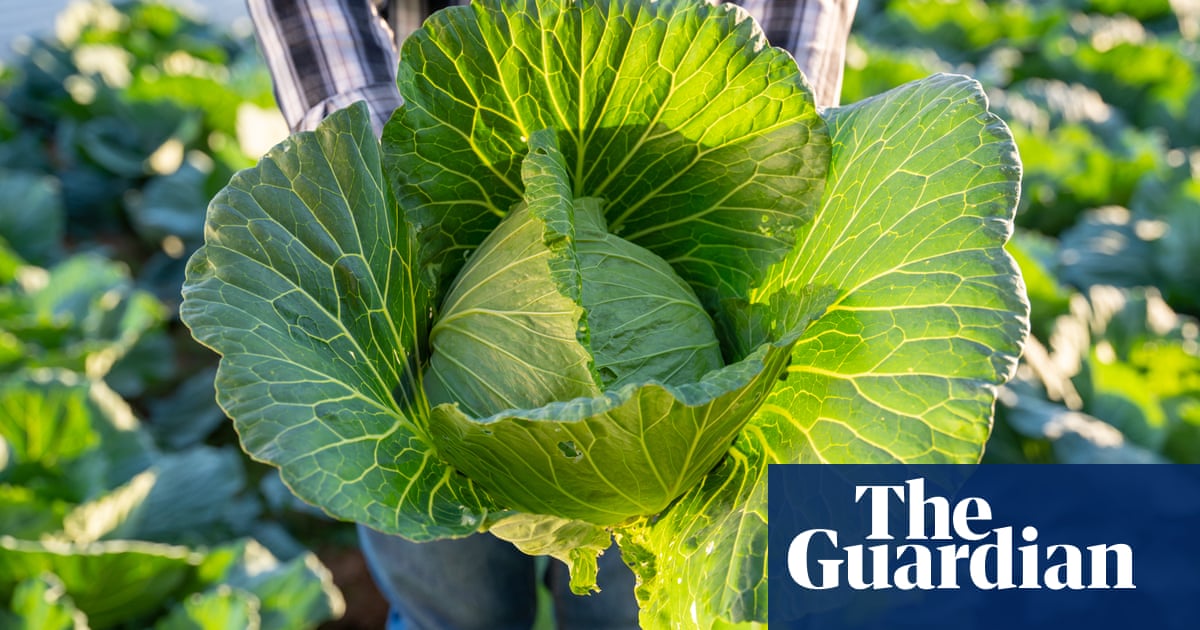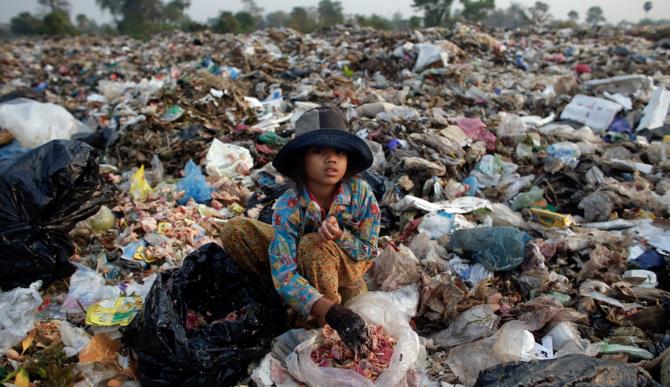
Using fertilisers derived from human faeces and urine can be as productive as conventional organic ones, with no risk of transmitting disease, according to new research.
It may seem unappetising, but humans have been using human waste as a fertiliser for thousands of years because it contains the key nutrients that plants need to grow, including nitrogen, phosphorus and potassium. Ploughing human excrement – conventionally flushed down our toilets and into the sewage system – back into the soil creates a more sustainable farming system without significant drops in yield, the researchers found.
The team studied a crop of white cabbages grown 12 miles (20km) south of Berlin between June and October 2019. They tested three waste-based products: two fertilisers derived from human urine and one from human faeces called “faecal compost”. The effects were compared with those of using a commercial organic fertiliser, vinasse, which is made from sugar-beet and is a byproduct of bioethanol production.
The lead co-author Franziska Häfner, a PhD student at University of Hohenheim in Germany, said: “The fertilisers from nitrified human urine gave similar yields as a conventional fertiliser product, and did not show any risk regarding transmission of pathogens or pharmaceuticals.”
Urine fertiliser produced comparable, or even slightly higher, yields to those of the commercial fertiliser. According to the paper, published in Frontiers in Environmental Science, the yield for faecal compost was on average 20-30% lower. However, the faecal compost bolstered soil carbon, meaning fertility could be maintained long term. As a result, the most sustainable option is mixing urine fertiliser and faecal compost together, the researchers sugggested, producing yields on average 5-10% lower than commercial fertilisers.
Researchers tested the human waste fertilisers against organic fertilisers instead of conventional synthetic fertilisers because they say there are many reasons why we need to shift away from synthetic ones, given the damage they do to the environment, so they did not want to revert to them as standard in the experiment. Yield from organic fertiliser is estimated to be about 20% lower.
Synthetic fertilisers are credited with increasing food production and reducing hunger, but they come with huge environmental costs, including air and water pollution, as well as driving declines in wildlife. Fertilisers have high greenhouse gas emissions, with synthetic nitrogen fertilisers responsible for about 2% of global energy use.
Meanwhile, the cost of fertiliser has increased exponentially. Prices in 2022 were three times higher than at the start of 2021, which is likely to cause food costs to rise this year, putting an additional 100 million people at risk of undernourishment, research suggests.
To test how safe the fertilisers were, researchers screened the waste for 310 chemicals such as insect repellants, rubber additives and flame retardants, which people sometimes empty into their toilet. They also looked at pharmaceutical products such as painkillers and hormones, which end up mainly in urine. More than 93% of these chemicals were not detected, and the remainder were present at very low concentrations.
The most significantly present were the painkiller ibuprofen and carbamazepine – used to treat epilepsy and as a mood-stabiliser – which were found in the edible parts of the cabbages (ie, the head) but in extremely low quantities. This would be because the vegetable had taken them in through its roots.
The researchers found that you would need to eat half a million heads of cabbage to take the equivalent of one carbamazepine pill. “In general, the risk for human health of pharmaceutical compounds entering the food system by means of faecal compost use seems low,” they wrote.
Dr Rupert Hough, an environmental and soil scientist from the James Hutton Institute in Aberdeen, who was not involved in the research, said sewage sludge has been used for decades as a fertiliser in agricultural production but that there had always been challenges in ensuring it was not contaminated. He said: “Quality has significantly improved over time due to new modern treatment methods and now, in most situations, it can be used without harm. This study shows that source separation of human waste prior to any conventional wastewater treatment, ie, the use of composting toilets, has the potential to improve quality further.”
Effectively recycling human waste requires changes to toilets so that urine and faeces can be separated and the nutrients they contain harvested. For the experiment, researchers used waste collected in dry toilets, although some new water-based toilets can also keep faeces and urine separate.
The study’s other co-author, Dr Ariane Krause, a researcher at the Leibniz Institute of Vegetable and Ornamental Crops in Grossbeeren in Germany, said: “I think water toilets as we know them will only be on our planet for a short period of time – they are nice and comfortable but they don’t work in the long term, because they are not sustainable.
“Our findings in the field experiment corroborate what researchers have found in a couple of dozen experiments from Asia, Africa, North America and South America. Our next step will be to merge the datasets and to conduct a meta-analysis,” she said.












